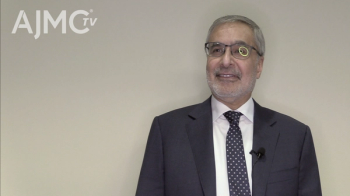
Pancreatic Tumor Classification Could Guide Treatment, Researchers Say
Researchers in North Carolina reported discoveries that may lead to further understandings about how pancreatic cancer can become resistant to treatment.
Researchers in North Carolina
Pancreatic cancer is one of the deadliest cancer types, with fewer than 1 in 10 patients surviving 5 years after diagnosis, according to the National Cancer Institute.
University of North Carolina Lineberger Comprehensive Cancer Center researchers discovered 2 major subtypes of pancreatic cancer based on molecular and genetic features in 2015. Around the same time, other researchers reported different classification systems with 3 and 4 subtypes. Therefore, no consensus was reached regarding which of the proposed systems was best for clinical decision making in pancreatic cancer.
In the present study, the researchers analyzed data from 2 recent clinical trials to understand which tumor classifications aligned with treatment response and found that the 2-subtype classification works best. They then analyzed 5 independent pancreatic cancer studies and found that the 2-subtype system best explained differences in overall survival.
Patients classified as having basal-like tumors showed worse survival outcomes. In addition, patients with the basal-like tumors showed poorer response to treatment than those with the other subtype, which the researchers called the “classical” subtype.
“Our hope is that we can use this information to tailor treatments, and potentially avoid giving therapies that may not work well for certain patients,” said coauthor Jen Jen Yeh, MD, a professor of surgery and pharmacology and vice chair for research in the UNC School of Medicine Department of Surgery,
Their new subtype classification method was generated with machine learning and relied on comparisons of how 9 pairs of genes are expressed. The method was extremely accurate, even when it was used to classify tumor samples that were processed and stored differently and used differently.
The classification algorithm is called Purity Independent Subtyping of Tumors (PurIST), a single-sample classifier that can be replicated on a wide range of platforms and sample types. PurIST subtypes have meaningful associations with prognosis and have significant implications for treatment response to FOLIFIRNOX.
“This study basically provides the evidence that this is something we can feasibly do in the clinic,” Yeh said.
The researchers are working to bring PurIST into a form that can be used in future clinical trials at the North Carolina Cancer Hospital, the University of Rochester, and the Medical College of Wisconsin. It can be used on tumor biopsies and can guide the choice of effective therapies for patients with pancreatic ductal adenocarcinoma.
Yeh said they they will continue to try to understand how the tumor subtypes can inform how patients respond to treatment. They are also trying to understand the differences between the 2 subtypes.
Reference
Rashid NU, Peng XL, Jin C, et al. Purity independent subtyping of tumors (PurIST), a clinically robust, single-sample classifier for tumor subtyping in pancreatic cancer [published online November 21, 2019]. Clin Cancer Res. doi: 10.1158/1078-0432.CCR-19-1467.
Newsletter
Stay ahead of policy, cost, and value—subscribe to AJMC for expert insights at the intersection of clinical care and health economics.
















